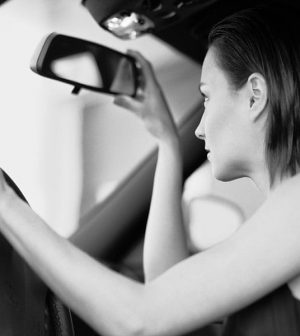- Could Your Grocery Store Meat Be Causing Recurring UTIs?
- Are You Making This Expensive Thermostat Error This Winter?
- Recognizing the Signs of Hypothyroidism
- 10 Strategies to Overcome Insomnia
- Could Artificial Sweeteners Be Aging the Brain Faster?
- Techniques for Soothing Your Nervous System
- Does the Water in Your House Smell Funny? Here’s Why
- Can a Daily Dose of Apple Cider Vinegar Actually Aid Weight Loss?
- 6 Health Beverages That Can Actually Spike Your Blood Sugar
- Treatment Options for Social Anxiety Disorder
Sleepy Drivers Involved in 100,000 Crashes a Year

Driving under the influence and distracted driving are well-known hazards, but few people think twice about getting behind the wheel when feeling drowsy, a sleep expert warns.
“Drivers can reduce the danger by being aware of risk factors and taking precautions,” said Dr. Praveen Rudraraju, who directs the Center for Sleep Medicine at Northern Westchester Hospital in Mount Kisco, N.Y.
Each year, nearly 100,000 traffic crashes can be attributed to drowsy driving, including more than 1,500 deaths and over 70,000 injuries, according to the U.S. National Highway Traffic Safety Administration.
Most drowsy driving accidents occur between midnight and 6 a.m. among drivers who are alone in their vehicle.
Risk factors for drowsy driving include: sleep loss — even just one hour less than you need; use of sleep aids, anti-anxiety medications or alcohol; driving long hours with few or no breaks, driving alone or with sleeping passengers; and having undiagnosed or untreated sleep disorders.
There are a number of things you can do to reduce the risk of drowsy driving, Rudaraju said.
Don’t consume alcohol and don’t take sedatives. If you feel drowsy when driving, find a safe place to pull over and nap. But even though a short nap can help, it’s best to get proper sleep.
Talk to your doctor about problems falling or staying asleep, especially if you are tired after a night’s sleep or if you snore with periods of gasping. Your doctor may suggest an overnight sleep study to determine if you have sleep apnea or another sleep disorder.
More information
The U.S. National Highway Traffic Safety Administration has more on drowsy driving.
Source: HealthDay
Copyright © 2026 HealthDay. All rights reserved.










